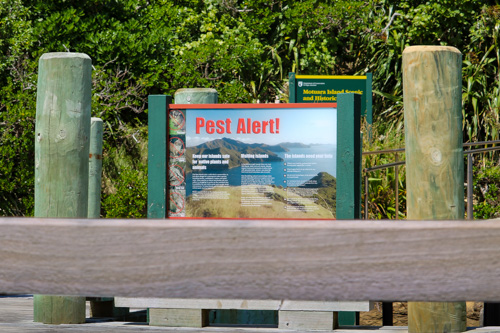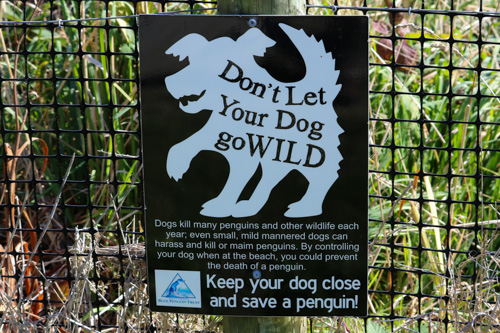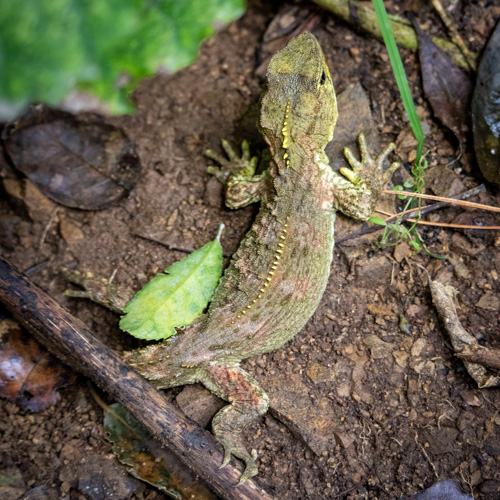- Home ›
- New Zealand Animals ›
- Predators of New Zealand
Predators of New Zealand: A Threat to Biodiversity and Conservation Efforts
New Zealand, often hailed as a nature paradise, is renowned for its pristine landscapes and unique wildlife. However, beneath the surface of this natural beauty lies a formidable problem: invasive predators of New Zealand.
These introduced species have wreaked havoc on New Zealand's native flora and fauna, threatening the country's delicate ecosystems and biodiversity. This article will explore the issue of New Zealand predators, their impact, and the ongoing efforts to mitigate their damage.
New Zealand Predators
New Zealand's native birds and wildlife evolved in isolation for millions of years, leading to the development of unique and flightless species like the kiwi and kakapo, which lack natural defences against mammalian predators.
Unfortunately, humans introduced several non-native species to the islands over the centuries, including rats, stoats, weasels, possums, feral cats, and dogs. These predators have become one of the most significant threats to New Zealand's native biodiversity.
List of Predators of New Zealand
New Zealand has several introduced predators that have had a significant impact on its native wildlife. Some of the most notable New Zealand predators include:
Rats:
Both the ship rat (Rattus rattus) and the Norway rat (Rattus norvegicus) are invasive species that prey on native birds, insects, and vegetation. They are notorious for their destructive impact on ecosystems.
Stoats:
Stoats (Mustela erminea) are small carnivorous mammals that pose a significant threat to native bird species, particularly those that nest on the ground.
Weasels:
Similar to stoats, weasels (Mustela nivalis) are carnivorous mammals that prey on native birds and their eggs and have a detrimental effect on New Zealand's wildlife.
Feral Cats:
Domestic cats that have gone wild, known as feral cats, are skilled hunters that threaten native birds, insects, and small mammals.
Possums:
The common Brushtail Possum (Trichosurus vulpecula) is an introduced herbivore that feeds on native vegetation, including trees and plants, and competes with native wildlife for food resources.
Hedgehogs:
European Hedgehogs (Erinaceus europaeus) in New Zealand are invasive and can impact invertebrate populations and native species.
Ferrets:
Ferrets (Mustela putorius furo) are carnivorous mammals that prey on native wildlife, particularly birds and small mammals.
Dogs:
Feral, or wild dogs, can have a detrimental impact on native species, including birds and small mammals. Dogs that form packs after escaping, or being release, from domestic homes can not only impact native wildlife but also maim and kill agricultural animals, and are a threat to humans.
Dog Control Sign to Protect Penguins, West Coast, New Zealand
These invasive predators have contributed to the decline and endangerment of many native species in New Zealand, making predator control and eradication efforts a critical aspect of conservation in the country.
Impact of Predators on Native Wildlife in New Zealand
The impact of these invasive predators on native wildlife has been devastating.
For instance:
Birds:
Many native bird species, such as the kiwi, kakapo, and kokako, have faced significant declines due to predation. Ground-nesting birds are particularly vulnerable to stoats and rats, which feed on their eggs and chicks.
Reptiles:
New Zealand is home to unique reptiles like the tuatara and various skinks and geckos. These reptiles often fall prey to introduced species, putting their populations at risk.
Invertebrates:
Even smaller creatures like insects and native snails have been impacted by invasive predators, leading to the decline of several species.
Forests:
The native forests of New Zealand have also suffered. Rats and possums eat the seeds and seedlings of many tree species, hindering forest regeneration.
Amphibians:
The native frogs of New Zealand have been hit hard, with several species becoming critically endangered or extinct due to predation.
New Zealand Conservation Efforts and Predator Control
Recognising the severity of the predator problem, New Zealand has embarked on an ambitious journey to protect its native biodiversity. Some key conservation efforts include:
Predator-Free 2050:
New Zealand has set an audacious goal to become predator-free by 2050. This initiative involves intensive pest control measures, including trapping, baiting, and the development of new technologies such as self-resetting traps. Predator Free 2050 Ltd
Island Sanctuaries:
Several offshore islands have been cleared of predators and are now serving as sanctuaries for native species. These islands provide safe havens where threatened species can thrive.
Predator Pest Alert Sign on Motuara Island, Marlborough Region, New Zealand

Community Involvement:
Community-led initiatives have played a crucial role in predator control efforts. Local volunteers participate in trapping and monitoring programs, creating a sense of ownership and responsibility for conservation.
Research and Innovation:
Ongoing research aims to develop innovative predator control methods, such as genetic modification techniques to suppress predator populations.
Challenges of Predator Control and Future Outlook for New Zealand
While New Zealand has made significant strides in predator control, challenges remain. Eradicating predators from the mainland is a monumental task, and some experts question the feasibility of the Predator-Free 2050 goal. Additionally, concerns about the ethical implications of some control methods, such as genetic modification, have sparked debates.
Despite these challenges, New Zealand's commitment to conserving its unique biodiversity is unwavering. The eradication of predators is essential not only for the survival of native species but also for the health of ecosystems and the cultural identity of the nation.
Further information on external sites:
- Predator Free 2050 Ltd Government owned
- Predator Free 2050 - Predator Free New Zealand Trust
- The work of the Department of Conservation towards Predator-Free 2050 goals.
- Read about Sanctuary Mountain Maungatautari New Zealand and its predator proof fence.
Other Invasive Animals in New Zealand
Himalayan Tahr: While primarily herbivores and not a ‘predator’ as such, Himalayan tahr (Hemitragus jemlahicus) can cause damage to New Zealand's alpine ecosystems through overgrazing.
Tahr, deer, pigs, and other introduced invasive herbivores will be explored in another article in more detail.
Conclusion
Predators of New Zealand pose a serious threat to the country's native wildlife and ecosystems. However, through comprehensive and determined conservation efforts, the nation is working to combat this menace. While the road ahead may be challenging, the unwavering dedication of New Zealanders to protect their natural heritage offers hope that these unique ecosystems and species can be preserved for future generations to appreciate and enjoy.
Native Birds and Animals, and Wildlife Parks
New Zealand Wildlife Parks - New Zealand Birds - New Zealand Animals

